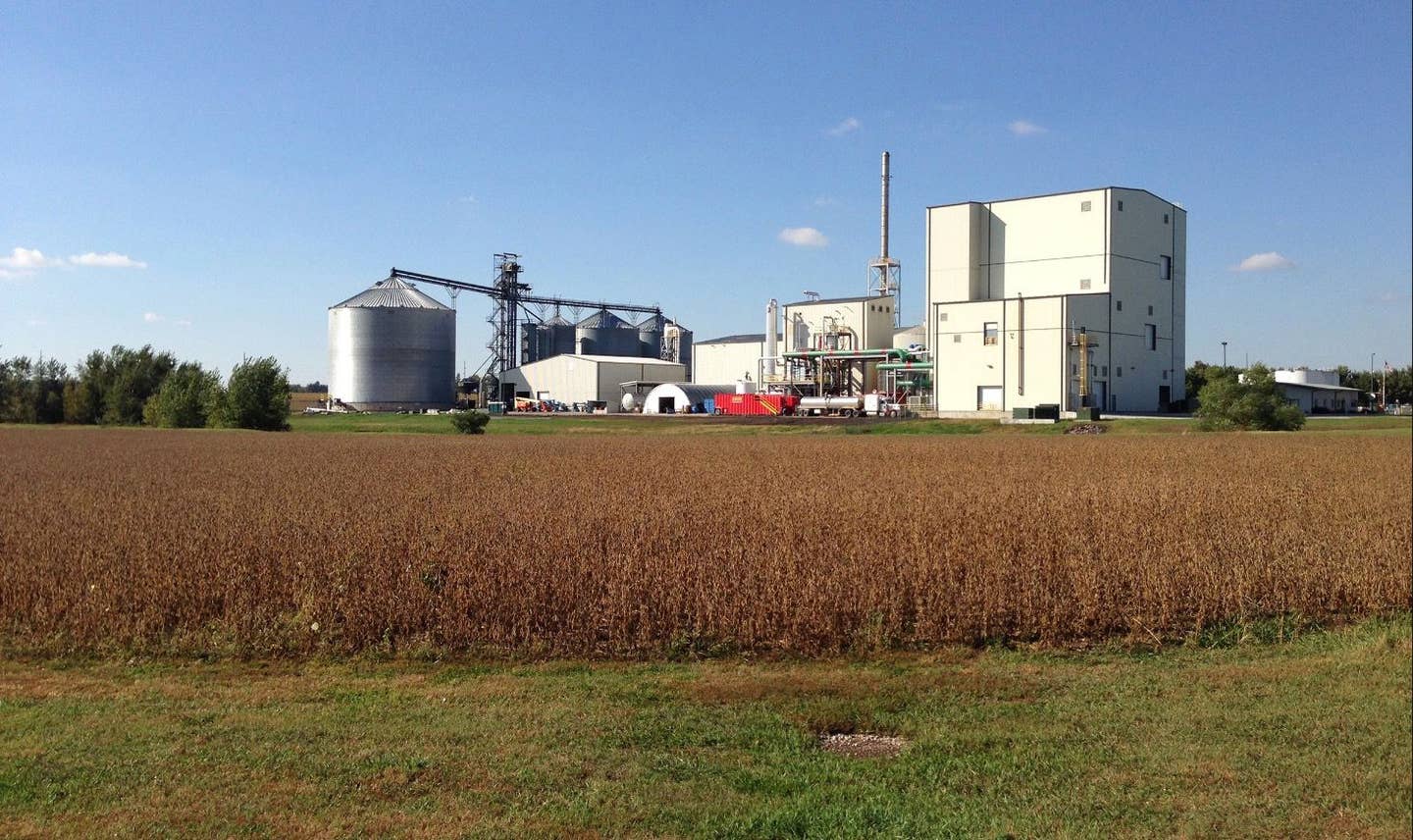
The plant in Luverne, Minnesota, converts corn feedstock into sustainable aviation fuel. Gevo
With airlines such as United pledging to become carbon-neutral by 2050, the primary question among pilots remains, “How will they get there without a massive overhaul of infrastructure and aircraft?” The answer lies in part in sustainable aviation fuel—and recent news from fuel producer Gevo gives a solid basis for those placing a bet on SAF.
The company announced on December 10 that its client and fuel supplier Avfuel Corporation has delivered its first load of SAF to Leading Edge Jet Center’s facility at King County International Airport-Boeing Field (KBPI). While Gevo had already secured contracts with Delta Air Lines, among others, to provide the volume needed for a viable solution, the Avfuel contract demonstrates the ability of SAF to find its way into the fuel tanks of business aviation operators now.
Gevo’s SAF solution, alcohol-to-jet synthetic paraffin kerosene (ATJ-SPK), is one of the few non-fossil-fuel-based alternatives to jet fuel available today. The fuel is a drop-in replacement for jet-A, meaning that it meets ASTM D1655 specifications, achieving the standards for flash point, thermal oxidation stability, freezing point, energy density, and total sulfur content.
But Gevo’s SAF provides an even more compelling case, because it is created in a cradle-to-cradle fashion. The ATJ-SPK is produced by using fermentation to convert sugars, starches, or hydrolyzed cellulose into alcohol (isobutanol or ethanol), which is subsequently processed into a mix of hydrocarbons. A wide range of feedstocks can be used—for example, in the case of corn—with the byproducts going directly back into the food chain. Spokesperson for Gevo, Andy Hawk, described it to Flying as a circular process. “The animal—the cow—needs the protein, and fuel needs the sugar” from the feedstock—and the high-protein animal feed created as a byproduct of fermentation even helps to reduce methane produced by the cows. Gevo’s first plant, in Luverne, Minnesota, is surrounded by the farms that provide the feedstock to the plant. Roughly 10 pounds of animal feed is produced per single gallon of SAF, according to Hawk.
While corn makes sense as a feedstock in the midwestern US, “any plant with a sugar can be distilled into alcohol,” says Hawk, so manufacturing facilities in other parts of the world could use rice, sugar cane, straw, beets, sorghum, or wood. You can learn more via Gevo’s whitepaper on SAF.

Subscribe to Our Newsletter
Get the latest FLYING stories delivered directly to your inbox






